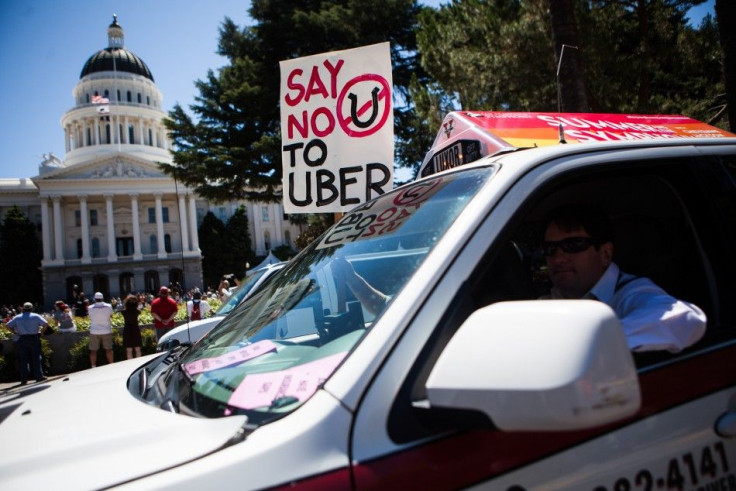Uber Forces Canadian Cities To Rethink Business Models Of Taxi Industry

Protests by taxi drivers in Canadian cities are forcing a rethink on the conventional taxi business model. Their agitation is against taxi services offered by Uber using mobile apps with the added attraction of lower fares. The rising competition in the taxi industry after the advent of "disruptive technologies" have rattled politicians across Canada who had been administering the taxi regime.
Now they are seeking ways to re-evaluate sustainability of conventional taxi industries. It is also a signal of the conventional taxi permits system coming under pressure as big cities continue to grapple with the new competition thrown in by new players like Uber, whose drivers can work with little overhead costs and offer lower cab fares.
Cities of Toronto, Montreal, Vancouver and Edmonton are now looking to modernise their taxi industries with new solutions. They are in unison at opposing Uber's business model, which they call "illegal" and also use police to seize drivers' vehicles. But the battles against the upstart are lately turning unsuccessful. One instance is the jolt for city of Toronto when it lost a court case against Uber with the judge ruling that no evidence could be found that the company has been operating as a taxi broker or it breached the city’s bylaws.
Sunil Johal, policy director at the Mowat Centre at the University of Toronto, notes it is time politicians thought about the interests of citizens rather than boosting earnings of traditional taxi drivers. In his view, the days of making a living by driving a taxi full time is over. It is also about the loss of control on taxi permits that politicians could dole out. For example, in Quebec, the government regulates the number of taxi permits. As a result, the island of Montreal will have only 4,522 permits. The permits in Notre-Dame-de-Pierreville, a town of 2,000 people, can have only two.
Taxi-Driver Centric
“The goal is to keep the revenues of the taxi drivers higher — that's it,” said Montreal Economic Institute's Vincent Geloso, reflecting on the current system. He also wanted deregulation in the industry.
With limited number of permits, prices are also high. It is roughly CA $200,000 in Montreal, with a market in the size of $900 million. The existing business model of buying permits, selling, trading and renting them thrived for long with occasional loans to drivers to afford those permits. But suddenly that system has come under threat with companies like Uber stepping in, whose drivers do not buy permits or crib about overheads. They just use a mobile application to gather customers.
Genesis Of Unrest
In all places, Paris, Hong Kong, South Africa including Canada, the protests of taxi drivers have the same rationale - loss of wages and jobs as well as protection from competition. That anguish is understandable, writes National Post. In Canada, it is known that taxi companies of Toronto and other cities are bound by a raft of regulations from which Uber is looking free. The taxi drivers, who have spent huge amounts in procuring the limited supply official taxi plates, are worried. It ultimately boils down to a case of high investments and fear of dud returns.
For feedback/comments, contact the writer at k.kumar@ibtimes.com.au.





















